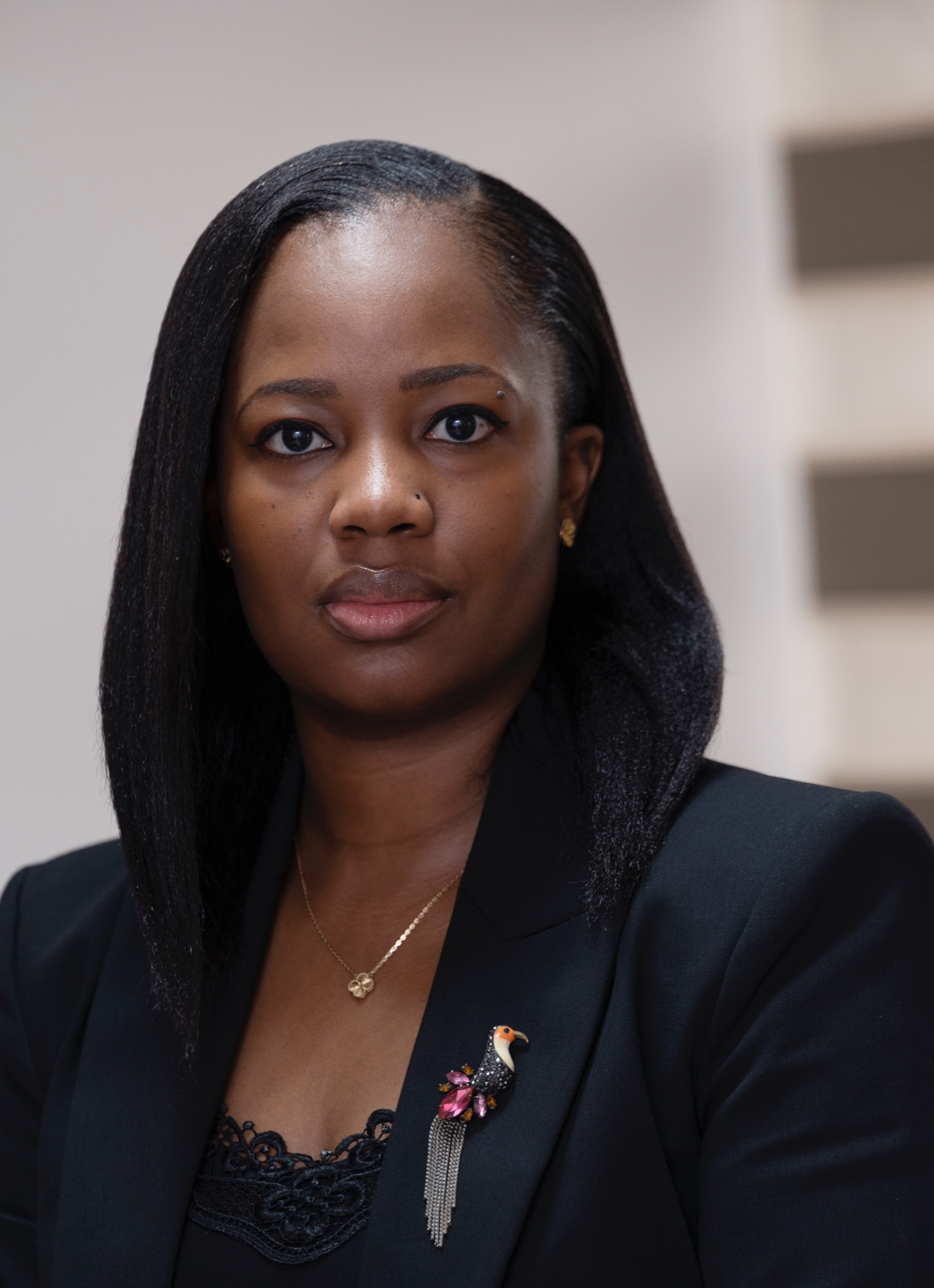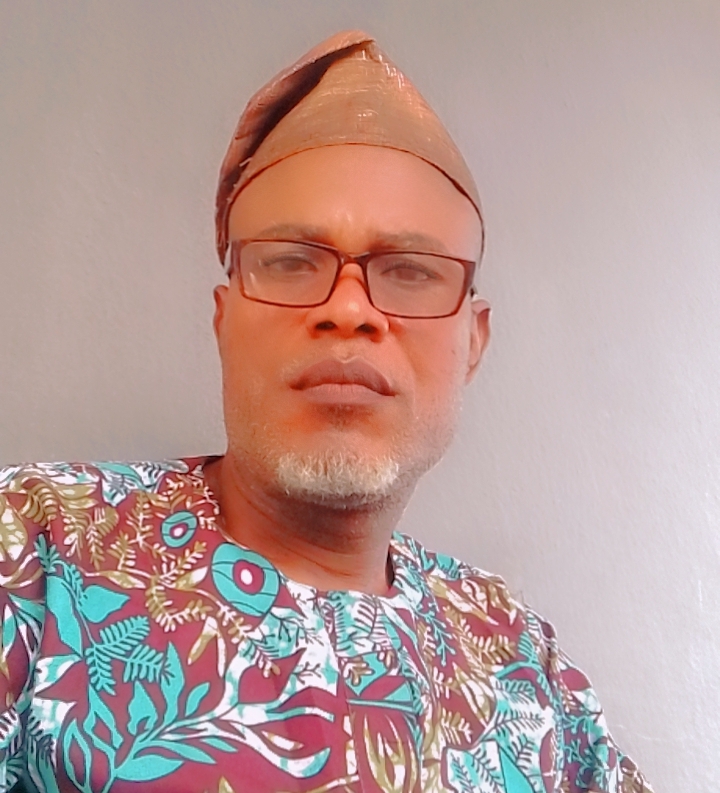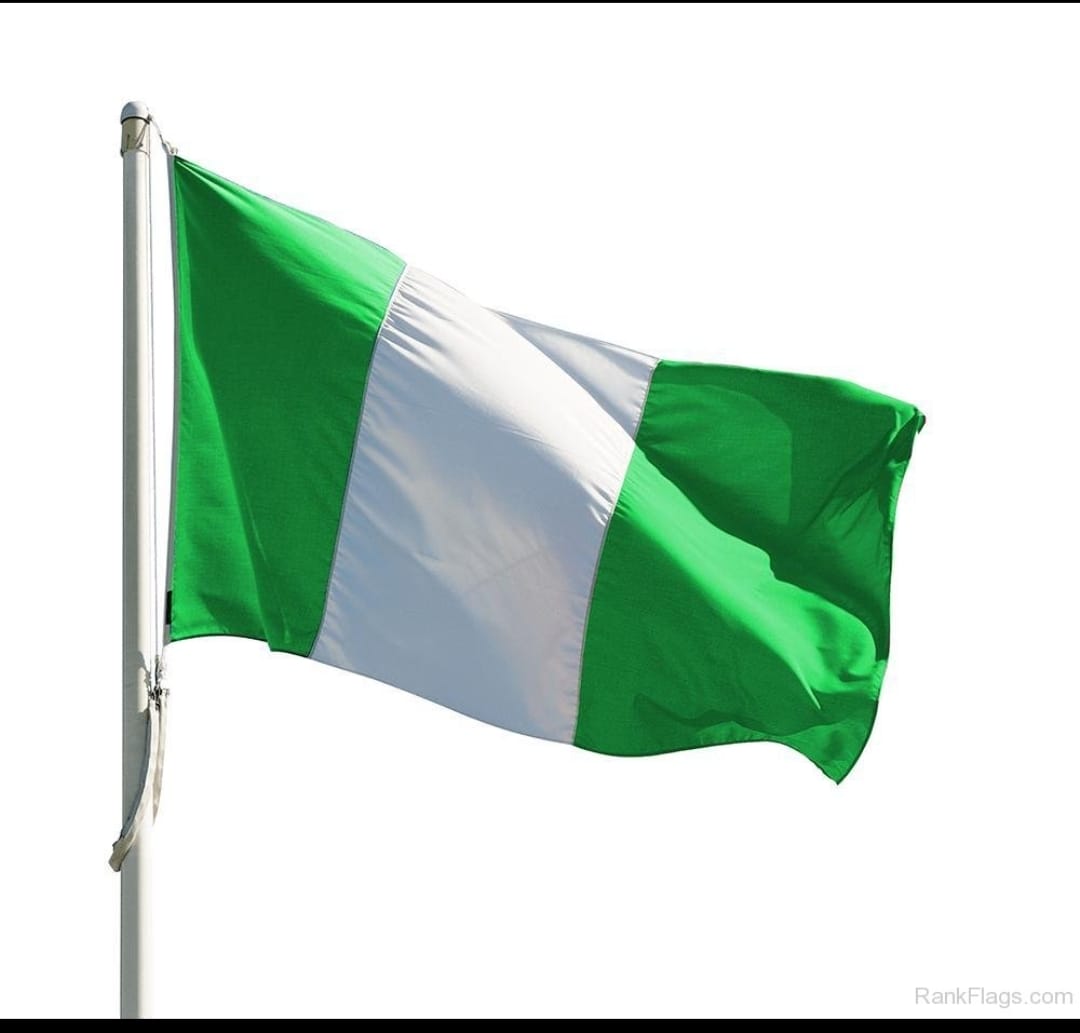society
The Journey of the Village Fishermen: Citizens as the Lighthouse of Democracy by Zeni C St John
Published
8 months agoon

The Journey of the Village Fishermen: Citizens as the Lighthouse of Democracy
by Zeni C St John
In a small coastal village in Nigeria, the lives of the villagers revolved around the sea. Every day, the fishermen set out in their boats, navigating the vast, unpredictable waters in search of a bountiful catch. The sea provided their livelihood but was also filled with hidden dangers—strong currents, treacherous reefs, and sudden storms that could quickly capsize a boat.
To guide them safely back home, the villagers relied on their instincts, experience, and the flickering lights of the village fires that they could see from a distance. These fires were simple but powerful, their warm glow cutting through the darkest nights. They served as a beacon of hope and safety, reminding the fishermen that they could always find their way back to the village no matter how far they drifted.
Like the village’s guiding fires, the citizens of Nigeria play a crucial role in steering the country towards a brighter future. They are the ones who light the way, alerting leaders to potential dangers and helping to chart the course toward prosperity. Like the fishermen, the government depends on the citizens’ vigilance and feedback to navigate the complex waters of governance, ensuring that the journey leads to a safe and prosperous destination for everyone.
“Delivery” in governance is focused on achieving results. It involves the processes that produce tangible outcomes, address challenges, and provide solutions. Delivery enhances the coordination of government actors and initiatives, ensuring that accountability, planning, monitoring, implementation, and execution work together towards agreed outcomes. This process is akin to a ship on open waters with crucial components, including the vessel itself, the captain steering the boat, the crew working on board, the natural elements of sea and weather, and the lighthouse, which serves as a guiding light and warning system.
As this administration strives to deliver on its mandate, it requires various factors, including human resources and skills, to ensure smooth sailing and an eventual arrival at the desired destination. Furthering our analogy, if the ship is Nigeria and the course is Renewed Hope, the government needs all hands on deck to navigate global conditions and local factors, whether inherited, created, or encountered.
One critical success factor in this journey is the citizenry. Citizens are like the fires on the shores of the coastal village or a lighthouse, which guides ships, especially in tumultuous waters and weather. It serves as an early warning system for the Captain and crew on board, alerting them to perils they might not have fully factored in.
Depending on the storms the vessel is navigating and its distance from the destination, the lighthouse may occasionally lose sight of the ship but must remain vigilant and concerned. Similarly, the citizen must watch as a lighthouse keeper, listen to sound warnings, and maintain hope and commitment to the vessel’s safe arrival. This is in the interest of everyone, whether they are on board or stationed at the lighthouse.
It is important to note that the lighthouse cannot see or hear everything aboard the ship during the journey. From its static location, it may have a general awareness of the expected path of travel and what is happening en route. Still, the Captain and crew must deal with elements that the lighthouse may not have immediate visibility of.
“The strength of a nation lies in the hands of its people,” said President Bola Ahmed Tinubu. “When citizens stand vigilant and proactive, they become the true guardians of our shared journey.”
On the other hand, the ship’s captain understands the dangers and immediate challenges those aboard face, navigating storms and adjusting the sails as needed. While the lighthouse understands the direction of travel and can see when the ship is on course, it stands tall, ready to support, signal, and welcome it. Therefore, the two must work hand in hand towards delivery.
Above the complexities of governance, ships arrive at the intended destination because they have embraced the vision and are now awaiting its delivery. Sometimes, behind-the-scenes governance may feel distant, while the resulting benefits or burdens seem ever-present in citizens’ everyday lives. Similarly, latent elements being navigated on the open water are unseen by the lighthouse.
However, even when the burdens appear heavy, and the arrival of what is to be delivered feels far off, rest assured that citizens play an active role in this journey. They must assess the direction of travel and suggest course corrections as necessary, which, where pertinent, will be taken up and implemented by the captain and the crew. The President Bola Ahmed Tinubu administration has prioritised a delivery mechanism for this critical feedback—the lighthouse is located at https://app.cdcu.gov.ng.
This platform hosts the Citizens’ Delivery Tracker, ensuring citizen-centric governance remains at the heart of this administration’s journey. The Tracker presents deliverables and key performance indicators to citizens—a map of the direction of travel and a space for citizens to assess progress toward the delivery of promised goals. Citizens can track the progress of implementing the performance bonds between Mr President (our Captain) and his Ministers (the crew tasked with navigating challenges to deliver the benefits of good governance and sustainable development across their respective portfolios).
Here, citizens (lighthouse keepers) can rate the performance of Ministries, report on their eyewitness accounts (where applicable) of the progress towards delivery, and provide feedback on the resolution of their pain points. The Central Results Delivery Coordination Unit reviews each comment, escalates it to the responsible Ministry, and gives feedback to the expectant citizen through this same platform.
Similar to how the ship awaits the guidance of the lighthouse, our Captain and his crew actively seek and welcome feedback from citizens. This feedback is a crucial navigational tool, enabling the government to adjust the course based on insights from those with first-hand knowledge of the challenges and opportunities on the ground. Citizens are uniquely positioned to identify areas that may require attention, providing valuable perspectives to enhance the government’s ability to respond effectively to expected and unforeseen circumstances. By incorporating this feedback, the leadership ensures that governance remains dynamic and responsive, continually adapting to the nation’s evolving needs and aspirations. This collaboration between the citizens and their government underscores a shared commitment to steering Nigeria towards a future that reflects the hopes and dreams of all its people.
“Our journey as a nation is not just about reaching a destination, but about how we navigate the course together,” President Bola Ahmed Tinubu added. “With the guidance of our people, we chart the path toward a future that benefits everyone aboard.”
Our compass as a nation points towards reforming the economy, strengthening national security, boosting agriculture to achieve food security, unlocking energy and natural resources, enhancing infrastructure and transportation, focusing on essential pillars of development, accelerating diversification, and improving governance. With the guidance of the lighthouse—our citizens—attention will be called to potential diversions and enhanced collaboration, steering the ship toward a destination beneficial to all aboard and those waiting on shore. Join the journey of delivering renewed hope and help to light the charted course as the government navigates these complex waters and delivers the dividends of democracy.
Lighthouses are critical during rough seas, dark clouds, and challenging journeys—currently experienced at home and abroad. In these times, the government relies on the lighthouse—the citizens—to be a steady beacon, guiding us safely through adversity. As the government faces endless challenges and uncertainties, citizens must remain vigilant and committed to the collective journey. Trusting that the Captain, our President, will steer the ship with determination and resolve is essential. Together, we will reach our destination by working hand in hand, realising the vision of a prosperous and harmonious nation.
In closing, “A nation’s true strength lies not in the hands of its leaders alone, but in the collective vigilance and commitment of its people.”
Zeni St. John is the Special Assistant to the President on Delivery and Coordination
Related
Sahara weekly online is published by First Sahara weekly international. contact saharaweekly@yahoo.com

society
There Was a Country: Chinua Achebe’s Testament of Nigeria’s Lost Promise
Published
1 hour agoon
April 18, 2025
There Was a Country: Chinua Achebe’s Testament of Nigeria’s Lost Promise
Related
society
Celebrity journalist, Ajibade Alabi, gets new appointment
Published
15 hours agoon
April 17, 2025
Celebrity journalist, Ajibade Alabi, gets new appointment…Appointed as Media Director of Omolaja Solidarity Forum (OSF) and National Director of Publicity of National Liberation Patriots (NLP).
Celebrity journalist and international award winner, Comrade Samson Ajibade Alabi (aka Murphy) has been appointment as the Media Director for Omolaja Media Team which is a Committee of the Omolaja Solidarity Forum (OSF), a political support group under the Social Democratic Party (SDP). The versatile journalist with over 25 years in print journalism that spread across Nigerian newspapers like Nigerian Tribune, Compass Newspapers, Daily Times, Westerner Magazine, Leadership Newspapers, Daily Newswatch among other established national newspapers, is also appointed as the National Publicity Secretary of National Liberation Patriots (NLP), another prominent support group under the same Party (SDP). In addition, Comrade Ajibade Alabi is also the National Publicity Secretary of the Coalition for Sustenance of Democracy still under the same Social Democratic Party. In an appointment letter that was signed by Professor Muhammad Omolaja, the Ike Mba 1 of Africa, the triple appointments start immediately.”Your appointment starts with immediate effect. Your first official assignment will be at the forthcoming meeting of the Yoruba Council of Elders (YCE) in Ibadan, Oyo State, on Thursday, April 24, 2025. Henceforth, any official journey I am to make, you will be physically present with me. You will be assisted by Comrade Abdulsalaam Yusuf, another good hand, from Niger State. Congratulations on this laudable appointment. I hope you will always do good jobs on this journey of professionalism”.
Responding, Comrade Samson Alabi, the Nigeria Media Award Winner in 2014 (Entertainment) accepted the challenges and promised to justify the appointment given to him:”Even though I am still ruminating on the euphoria of this noble assignment, I will rather delay the celebration till when I have delivered on what I was given to do, which is to place the ambition of Prof. Muhammad Omolaja for his political race under the Social Democratic Party he might contest for. I want to appreciate Prof. Muhammad Omolaja and the team for entrusting on me the task of paddling the canoe of the media sector of the political group”Comrade Ajibade Alabi is currently with the Daily Monitor newspaper as their entertainment and society line editor.
Related
society
Reclaiming Identity: Why Nigerians Must Know Their State Flags, Capitals, and Heritage
Published
18 hours agoon
April 17, 2025
Reclaiming Identity: Why Nigerians Must Know Their State Flags, Capitals, and Heritage
By George Omagbemi
Sylvester
In the intricate mosaic that is Nigeria, a federation of 36 states and a Federal Capital Territory, it is both ironic and alarming that many citizens are unaware of their own state’s flag, capital, or historical relevance. In a nation grappling with identity crises, ethnic disunity, and declining national consciousness, such ignorance is not merely a trivial gap in civic knowledge but a serious deficit that weakens our collective fabric.
This article argues, with 100% factual backing, that every Nigerian should know their state flag, its colors and symbolism, the capital city, and what their state is uniquely known for ie. economically, historically, and culturally. More so, it is time to elevate state flags to the same civic prominence as the Nigerian national flag. This is not merely a symbolic gesture, it is also a critical step toward nurturing inclusive patriotism, strengthening federal identity, and reviving cultural pride.
The Foundation of Identity: States as Building Blocks
Nigeria’s current federal structure, enshrined in the 1999 Constitution (as amended), is built upon 36 constituent states, each with a unique cultural and economic identity. These states are not arbitrary divisions; they are legacies of historical evolution; from colonial provinces to regions and finally states. From Lagos to Borno, Bayelsa to Sokoto, each state carries a story of struggle, resilience, and distinction.
Knowing one’s state flag and capital should be the minimum requirement of citizenship. These are not mere symbols but they are repositories of history and pride. In the United States, individual state flags are displayed in government offices, classrooms and even private homes. In India, every state celebrates its own formation day with fanfare, highlighting local heroes, culture and achievements. Nigeria must follow suit if it hopes to rebuild patriotism from the grassroots up.
A Legacy of Leadership: Military and Civilian Administrations
Nigeria’s journey through governance, military and civilian has shaped the identity and development trajectory of each state. For instance, the creation of 12 states by General Yakubu Gowon in 1967 was a direct response to ethnic tensions and a strategic move to weaken Biafra’s secessionist agenda. Subsequent expansions under Murtala Mohammed (1976), Ibrahim Babangida (1987 and 1991), and General Sani Abacha (1996) brought the total to 36 states.
Each state has evolved through this complex political history, yet citizens remain uninformed of the very symbols that represent them. How can one claim state pride when they cannot identify their flag or describe the meaning of its colors?
Importance of State Flags: Colors and Meanings
Although Nigeria’s federal system permits states to create their own emblems and flags, public awareness and usage are dismally low. A few examples illustrate this deficit:
Lagos State Flag: Green, blue, and white. Green symbolizes agriculture, blue denotes the Atlantic Ocean, and white stands for peace. Lagosians should proudly display this flag alongside the Nigerian green-white-green.
Delta State Flag: Green, white, and blue.
Green – agriculture and the state’s rich vegetation.
White – peace and unity among the diverse ethnic groups.
Blue – the River Niger and the state’s vast water resources.
Delta State, known as the Big Heart of the Nation, is rich in oil and gas, cultural diversity, and resilient people. A flag reflecting these attributes deserves prominent display in public institutions to foster pride and unity.
Rivers State Flag: Blue, white, and green. Blue symbolizes the River Niger, white peace, and green for agriculture. Given its status as the oil capital of Nigeria, this identity should be celebrated more openly.
These flags were not arbitrarily designed—they reflect deep-seated realities and aspirations of each people. Yet, due to poor civic education and lack of emphasis by successive administrations, many Nigerians cannot recognize these flags, let alone interpret them.
A comprehensive list of state flags and their colors, though not officially standardized in all 36 states, must be curated and taught in schools. States without official flags must be encouraged to develop them, backed by legislative frameworks to ensure adoption and proper display.
Cultural and Economic Uniqueness: What States Are Known For
Each state in Nigeria has a comparative advantage and cultural uniqueness. For example:
Kaduna is a hub of military and educational institutions.
Enugu is known as the “Coal City,” rich in mining history.
Benue is Nigeria’s food basket, dominant in yam and fruit production.
Ogun is a cornerstone of industrial activity.
Osun is home to the sacred Osun-Osogbo Grove, a UNESCO World Heritage site.
Cross River boasts of Obudu Cattle Ranch and Calabar Carnival.
Understanding these unique identities fosters internal tourism, regional development, and national cohesion. Citizens must be taught to appreciate their state’s economic potential and cultural wealth, not just as passive observers but as participants in its growth.
The Map and the Mind
Cartography is not merely a geographical exercise; it is a psychological one. The Nigerian map should be etched into every citizen’s consciousness. Every school should have a detailed political map of Nigeria highlighting all 36 states, capitals, and flags. Ministries, agencies, and local government offices should display both national and state flags as part of standard protocol. National pride must be decentralized.
Institutionalizing State Identity
To make this a reality, the following steps must be taken:
Compulsory Civic Education: Every primary and secondary school curriculum should include detailed instruction on state symbols, capitals, governors (past and present), cultural heritage, and economic potential.
Public Display Protocol: Just as the national flag is hoisted in schools and offices, state flags must be displayed prominently in all state institutions.
Flag Registration and Standardization: The Federal Ministry of Information and Culture, in collaboration with the National Orientation Agency (NOA), should catalog all existing state flags and coordinate with state assemblies to design and ratify flags where absent.
National Day for State Celebrations: Like Nigeria’s Independence Day, each state should mark its creation day annually with parades, flag hoisting, cultural exhibitions, and public lectures on its identity and contribution to Nigeria.
Recognition in Diplomatic Missions: Nigerian embassies abroad should reflect all 36 states through visual displays, promoting investment, tourism, and diaspora engagement.
Reclaiming Nigeria from the Bottom Up
We often bemoan the disunity and lack of patriotism in Nigeria, yet overlook the fact that national unity is not built from the top, it is built from the states upward. A man proud of his hometown is more likely to be proud of his nation. A woman who understands her state’s history is more likely to value the nation’s struggles.
When citizens see both their state flag and the national flag waving in unison, they are reminded of the federal promise: unity in diversity.
Final Thoughts
A country that does not know itself cannot lead itself. It is time for Nigerians to stop reciting only the green-white-green and begin embracing the colors of their roots. We must teach our children not only who the president is, but who their first governor was. Not only where Abuja is, but where their ancestral hometown lies on the map. Not only what Nigeria is, but what their own state stands for.
Let us raise the flags of our states, not in competition with the Nigerian flag, but in harmonious complement. In those colors, shapes, and symbols lie the future of our unity, the power of our diversity, and the soul of our federation.
Related
Trending
-

 Business6 months ago
Business6 months agoComprehensive Media Audit Shows Flutterwave, MTN Nigeria, and Bolt Outpacing Competitors in Media Engagement
-

 celebrity radar - gossips6 months ago
celebrity radar - gossips6 months agoHow Deji Adeyanju Secured The Release Of Speed Darlington
-

 Politics6 months ago
Politics6 months agoMy best is yet to come’ As Ambassador Adesina ‘Lanre Ogunsola affirmed at the APC APEX body, Obafemi Owode Local Government
-

 Entertainment4 months ago
Entertainment4 months agoAliu Gafar delivers stellar performance as Esusu in Femi Adebayo’s Seven Doors














